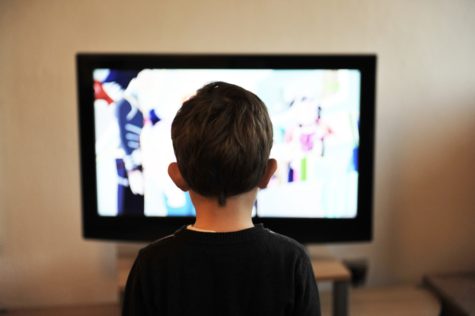PARKVILLE, Australia — With students around the world returning to school remotely this fall, parents are figuring out how to help their children succeed. A study finds the best way to improve their kids’ grades is to turn off the television and the computer. While other reports focus on the health hazards of watching too much TV, researchers say excessive screen time can significantly impact reading and math scores for young children as well.
A team led by the Murdoch Children’s Research Institute (MCRI) in Australia finds third-graders who watch more than two hours of TV daily or spend over an hour on the computer suffer double-digit losses in their academic performance. Researchers add this decline in performance can last for years. The study finds eight and nine-year-olds taking in too much electronic media suffer the equivalent of four months of lost learning by the time they’re 10 or 11 years-old.
Report card woes
The report examined 1,239 children from the Childhood to Adolescence Transition Study (CATS). Student performance was measured in the third grade and then again in fifth grade using results from Australia’s National Assessment Program – Literacy and Numeracy (NAPLAN).
The results reveal third-graders watching over two hours of TV or using too much computer suffer a 12-point drop in reading and math scores by Grade 5. For fifth-graders, watching too much television was also associated with a 12-point drop math and reading scores. When these 10 and 11-year-olds use the computer more than an hour a day, their math performance dropped by 14 points.
Video games not an issue?
While the report notes television and computer usage has an impact on academics, researchers say there’s little evidence video games do the same. The study does find more young children start playing video games between the third and fifth grades. From Grades 3 to 5, the number jumps from one in five children to one in four.
Dr. Mundy adds electronic media has become the top leisure-time activity for children. While previous research focuses on what that does to physical fitness and mental health, this study says the impact in the classroom is just as worrisome.
“The mid-primary school years are a time when academic difficulties are often first evident and predictive of lower academic performance and school dropout later,” Dr. Lisa Mundy of MCRI says in a media release.
“These middle years are also a time when children’s electronic media use dramatically rises and children have more say over the media they consume.”
COVID-19 complicates the issue
With so many children becoming remote learners due to the coronavirus pandemic, researchers say this further complicates things for parents trying to limit screen time.
“This question about the effects of modern media on children’s learning has never been more important given the effects of the pandemic on children’s use of time,” MCRI Professor George Patton says. “It underlines again the importance of children moving safely back into classrooms and face-to-face learning with their teachers.”
The study appears in PLOS ONE.
Like studies? Follow us on Facebook!
